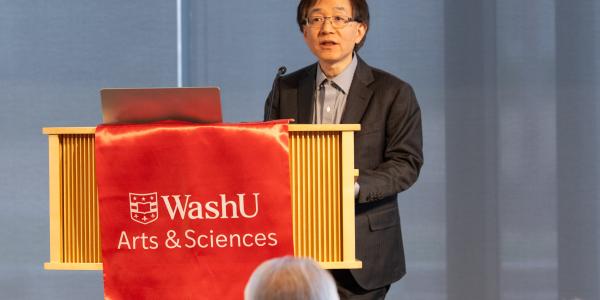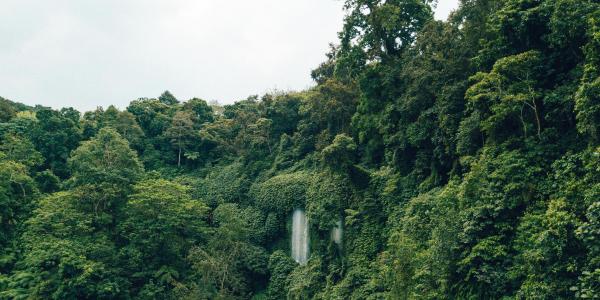The Incubator is bringing dynamic speakers together to inspire new collaborations across WashU.
A new conversation series from the Incubator for Transdisciplinary Futures aims to spark bold collaborations and generate dialogue across WashU.
The Incubator Unbound, launching with its first conversation on Sept. 16, will convene speakers from different academic backgrounds and perspectives to discuss how a common theme animates their work.
Incubator co-director Michael Frachetti described the event as a cross between a TED Talk, a talk show, and a research conference. “We want to create an experience for the audience that expands their thinking and inspires them to collaborate on new ideas,” he said.
For its debut, The Incubator Unbound will focus on resilience and hope. Four speakers will approach the topic from different angles relevant to their expertise, from the stories of natural disasters and migrant communities to the inner workings of human psychology.
“The speakers offer divergent ways of understanding how resilience is cultivated and what role hope plays in that process,” Incubator co-director William Acree said.
One of the panelists will be Mary McKay, executive vice provost and professor at the Brown School. Resilience and hope are central to the university and school’s mission of developing the next generation of leaders, McKay said.
“There is much science behind perceptions of hope influencing proactive, protective behaviors in humans — the same is true for resilience,” McKay said. “We seek to create opportunities for scholarly communities to offer encouragement, new perspectives, and to become epicenters of commitment that draw on science as a tool for positive change.”
Also speaking at the event will be Patrick Daly, a staff scientist in the Department of Anthropology, who focuses his research on societal resilience and sustainability.
“Societal resilience is such a broad topic that it needs to be addressed through transdisciplinary conversations and collaboration,” Daly said. “Multiple academic perspectives, as on display at this forum, are essential to both break us out of our individual silos and to foster genuinely multidisciplinary advancement in the study of resilience.”
With the launch of the Unbound series, Acree and Frachetti want to raise the profile of the Incubator, which, over the past two and a half years, has yielded incredible success stories at WashU.
By facilitating and funding dynamic collaborations between transdisciplinary faculty, the initiative has supported highly successful research projects that have landed $17 million in outside funding, scored prestigious publications, and led to new WashU courses.
But in most cases, the Incubator itself has stayed in the background while its funded collaborations have earned the spotlight. Moving forward, Acree said the goal is to bring the initiative’s work front and center.
“Our big task for this coming year is promotion of the Incubator,” Acree said. “That means creating more attention on campus, as well as finding ways to attract people from off campus to learn about what we're doing. Aside from academic work, we want to show how transdisciplinarity happens in real life. One way is by getting people from radically different areas to discuss something in common and see what comes out of it.”
The Incubator Unbound: Resilience and Hope will take place at 4 p.m. on Tuesday, Sept. 16, at the Mildred Lane Kemper Art Museum. In addition to McKay and Daly, speakers will include Steven Mennerick, the Feighner Professor of Neuropsychopharmacology in the Medical School, and Mitra Naseh, an assistant professor in the Brown School.
A second Unbound discussion, Scales of Life, is slated for November, focusing on the biological processes of life from microbial to planetary scales. More events will be announced in the future.
The Incubator for Transdisciplinary Futures (The Incubator) is a signature initiative of the Arts & Sciences Strategic Plan and was created to catalyze and support bold collaborations that will foster the future of scholarly inquiry.





